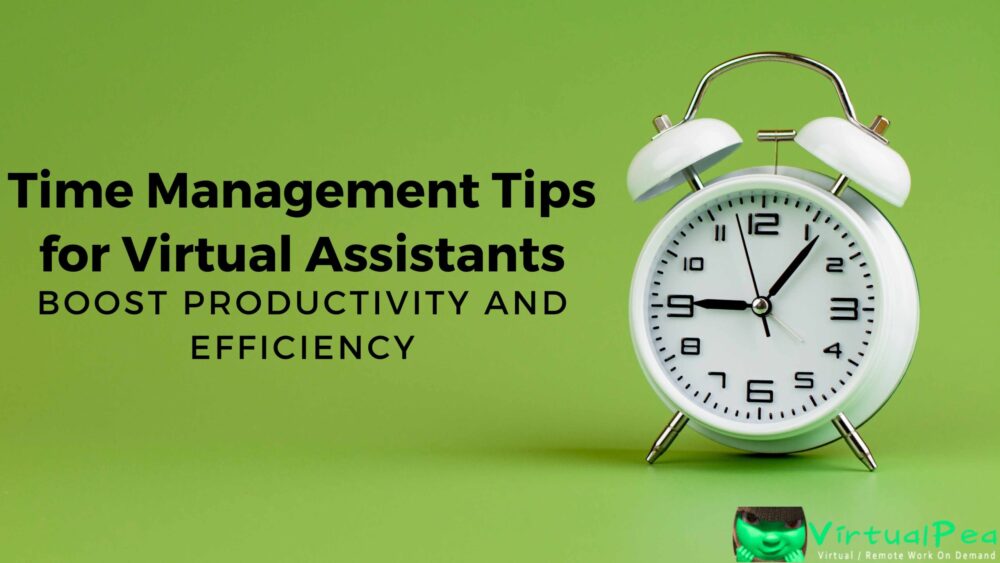
Virtual assistants play a vital role in today’s fast-paced business environment, providing valuable support to clients remotely. To excel in this dynamic role, virtual assistants must master the art of time management. Effectively managing your time ensures that you maximize productivity, meet deadlines, and deliver exceptional service to your clients. In this article, we will explore essential time management tips for virtual assistants, including efficient task management, prioritization techniques, effective scheduling strategies, and the importance of time tracking.
1. Efficient Task Management
Efficient task management is the foundation of effective time management. Start by creating a comprehensive task list that outlines all your responsibilities and deadlines. Break down larger projects into smaller, manageable tasks. Utilize task management tools or digital project management platforms to keep track of your tasks, set reminders, and prioritize your workload. Regularly update your task list to reflect changing priorities and ensure nothing falls through the cracks.
2. Prioritization Techniques
Prioritizing tasks is essential for optimizing your time and energy. Use techniques like the Eisenhower Matrix or the ABC method to categorize tasks based on urgency and importance. Identify high-priority tasks that require immediate attention and focus on completing those first. By tackling urgent and important tasks early on, you can alleviate stress and create a sense of accomplishment, setting a positive tone for the rest of your workday.

3. Effective Scheduling Strategies
Creating a well-structured schedule is key to effective time management as a virtual assistant. Start by blocking out specific time slots for different types of tasks, such as client meetings, administrative work, and project deadlines. Schedule uninterrupted time for focused work, minimizing distractions. Be realistic about the time required for each task, allowing for contingencies and unexpected interruptions. Leverage digital calendars or scheduling tools to manage your appointments and deadlines efficiently.
4. Time Tracking
Tracking your time allows you to gain insights into your productivity patterns and identify areas for improvement. Use time tracking tools or apps to record the time spent on each task. This practice not only helps you stay accountable but also provides valuable data for evaluating your efficiency and optimizing your workflow. Analyze your time logs regularly to identify time-consuming activities, streamline processes, and identify opportunities for delegation or automation.
5. Avoiding Multitasking
While multitasking may seem like a productivity booster, it often leads to decreased efficiency and increased errors. Instead, focus on single-tasking by dedicating your attention to one task at a time. Complete it before moving on to the next. This approach allows for better concentration, higher quality work, and faster task completion. Avoid the temptation to switch between multiple tasks simultaneously, as it can lead to decreased productivity and increased stress.
Effective time management is a crucial skill for virtual assistants, enabling them to maximize productivity, deliver high-quality work, and maintain a healthy work-life balance. By implementing efficient task management techniques, prioritizing tasks, creating effective schedules, tracking your time, and avoiding multitasking, you can optimize your efficiency and excel in your virtual assistance career. Remember, mastering time management takes practice, so embrace these tips and continuously refine your approach to achieve professional success as a virtual assistant.
